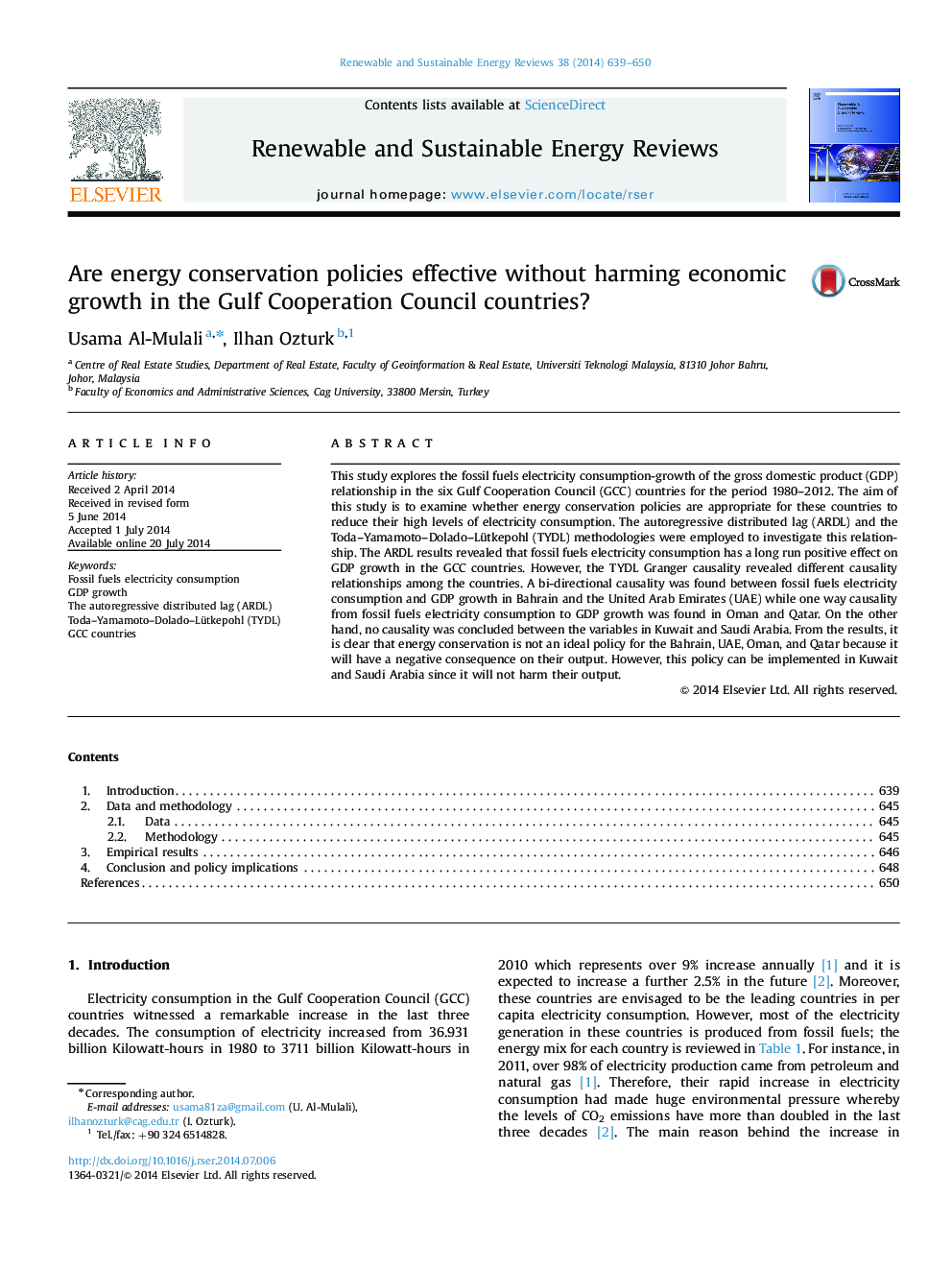| Article ID | Journal | Published Year | Pages | File Type |
|---|---|---|---|---|
| 8119794 | Renewable and Sustainable Energy Reviews | 2014 | 12 Pages |
Abstract
This study explores the fossil fuels electricity consumption-growth of the gross domestic product (GDP) relationship in the six Gulf Cooperation Council (GCC) countries for the period 1980-2012. The aim of this study is to examine whether energy conservation policies are appropriate for these countries to reduce their high levels of electricity consumption. The autoregressive distributed lag (ARDL) and the Toda-Yamamoto-Dolado-Lütkepohl (TYDL) methodologies were employed to investigate this relationship. The ARDL results revealed that fossil fuels electricity consumption has a long run positive effect on GDP growth in the GCC countries. However, the TYDL Granger causality revealed different causality relationships among the countries. A bi-directional causality was found between fossil fuels electricity consumption and GDP growth in Bahrain and the United Arab Emirates (UAE) while one way causality from fossil fuels electricity consumption to GDP growth was found in Oman and Qatar. On the other hand, no causality was concluded between the variables in Kuwait and Saudi Arabia. From the results, it is clear that energy conservation is not an ideal policy for the Bahrain, UAE, Oman, and Qatar because it will have a negative consequence on their output. However, this policy can be implemented in Kuwait and Saudi Arabia since it will not harm their output.
Keywords
Related Topics
Physical Sciences and Engineering
Energy
Renewable Energy, Sustainability and the Environment
Authors
Usama Al-Mulali, Ilhan Ozturk,
